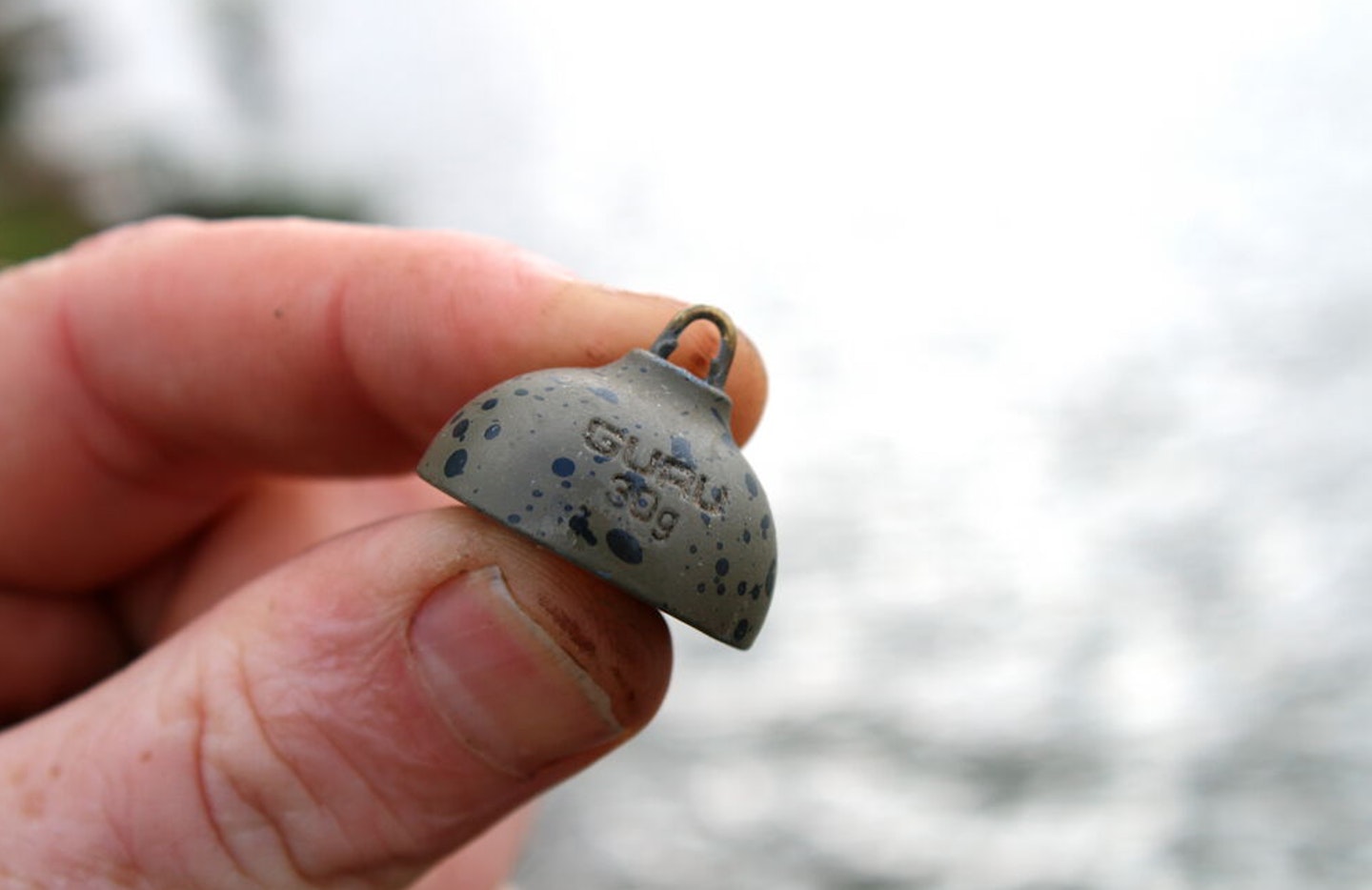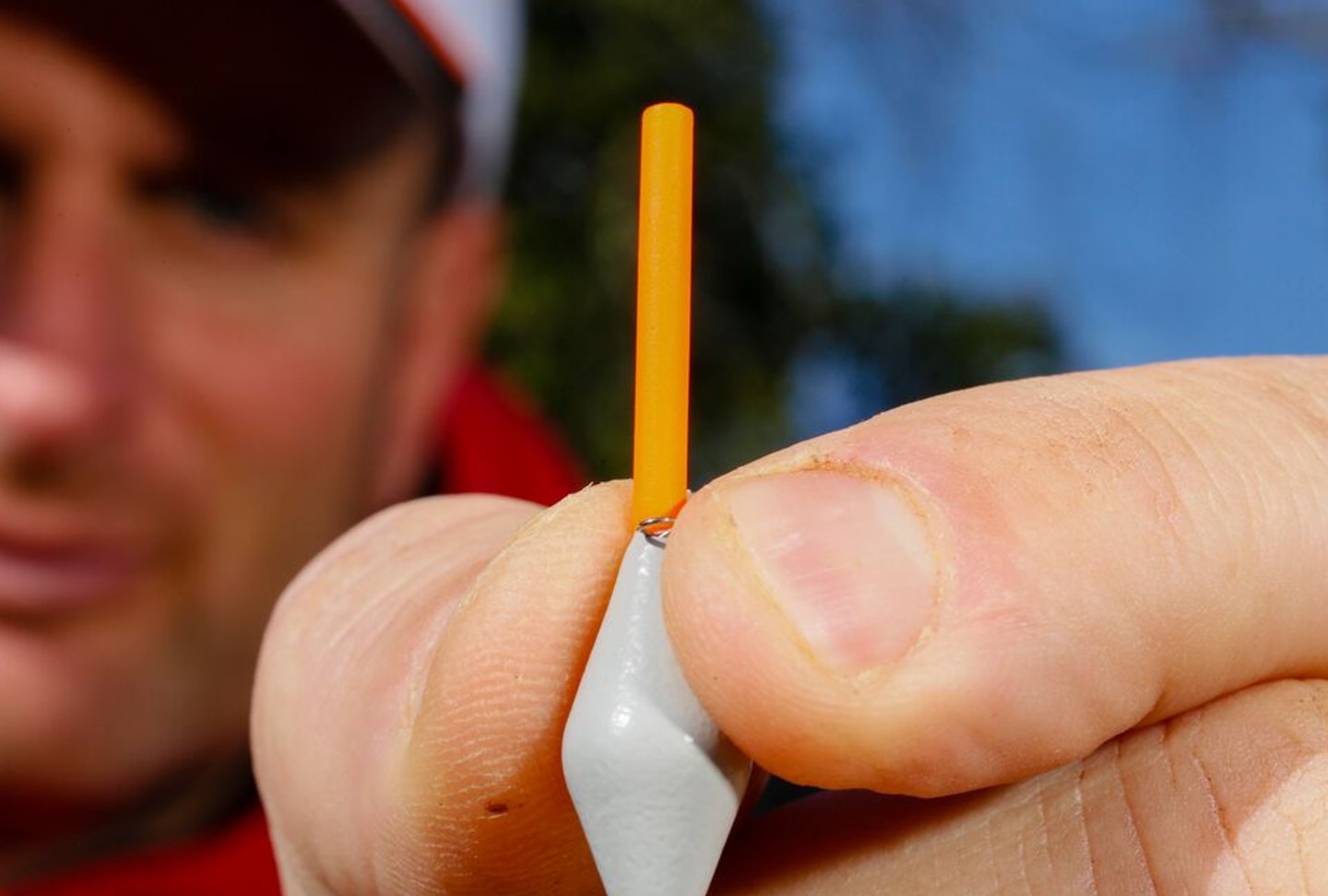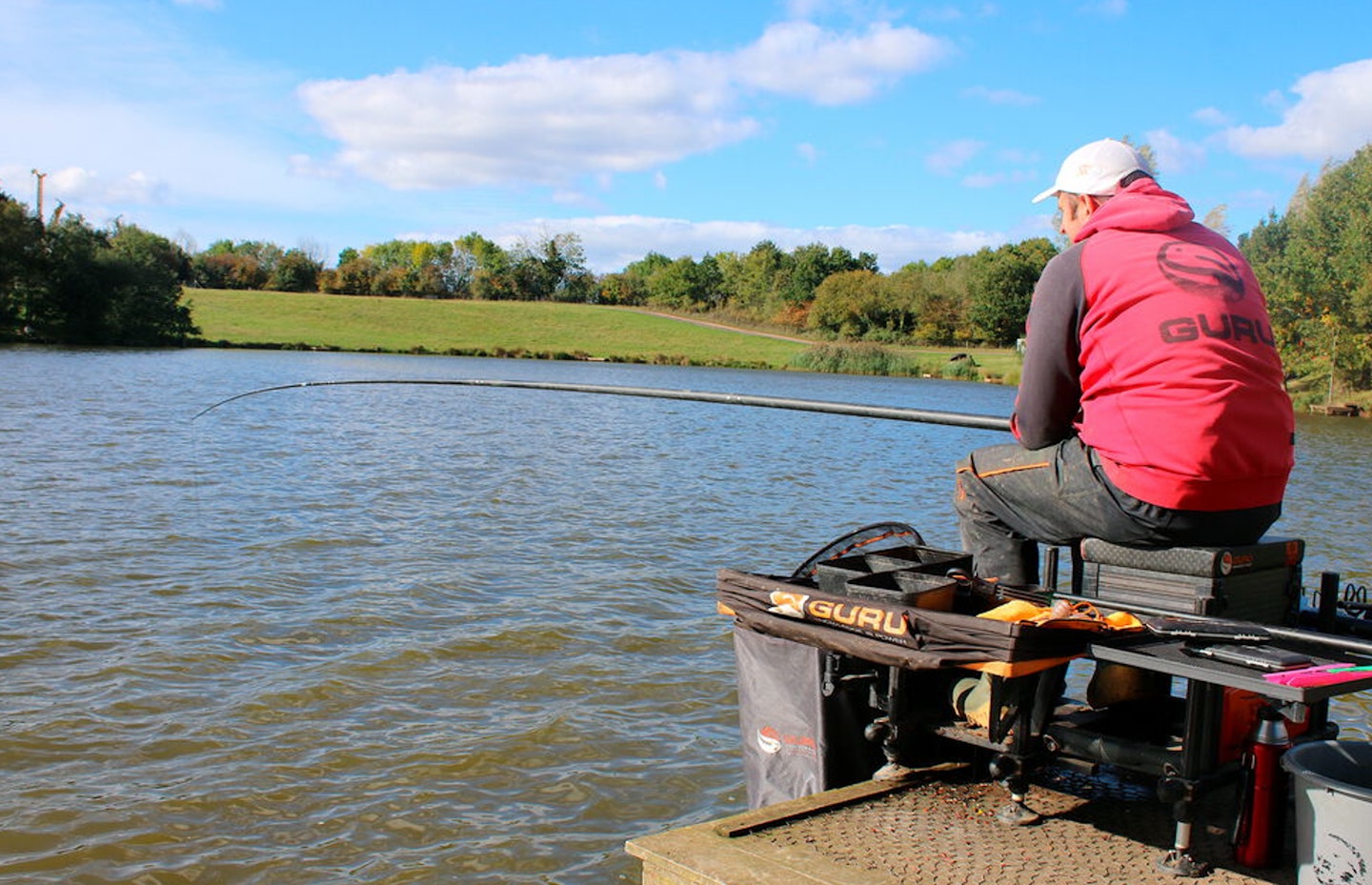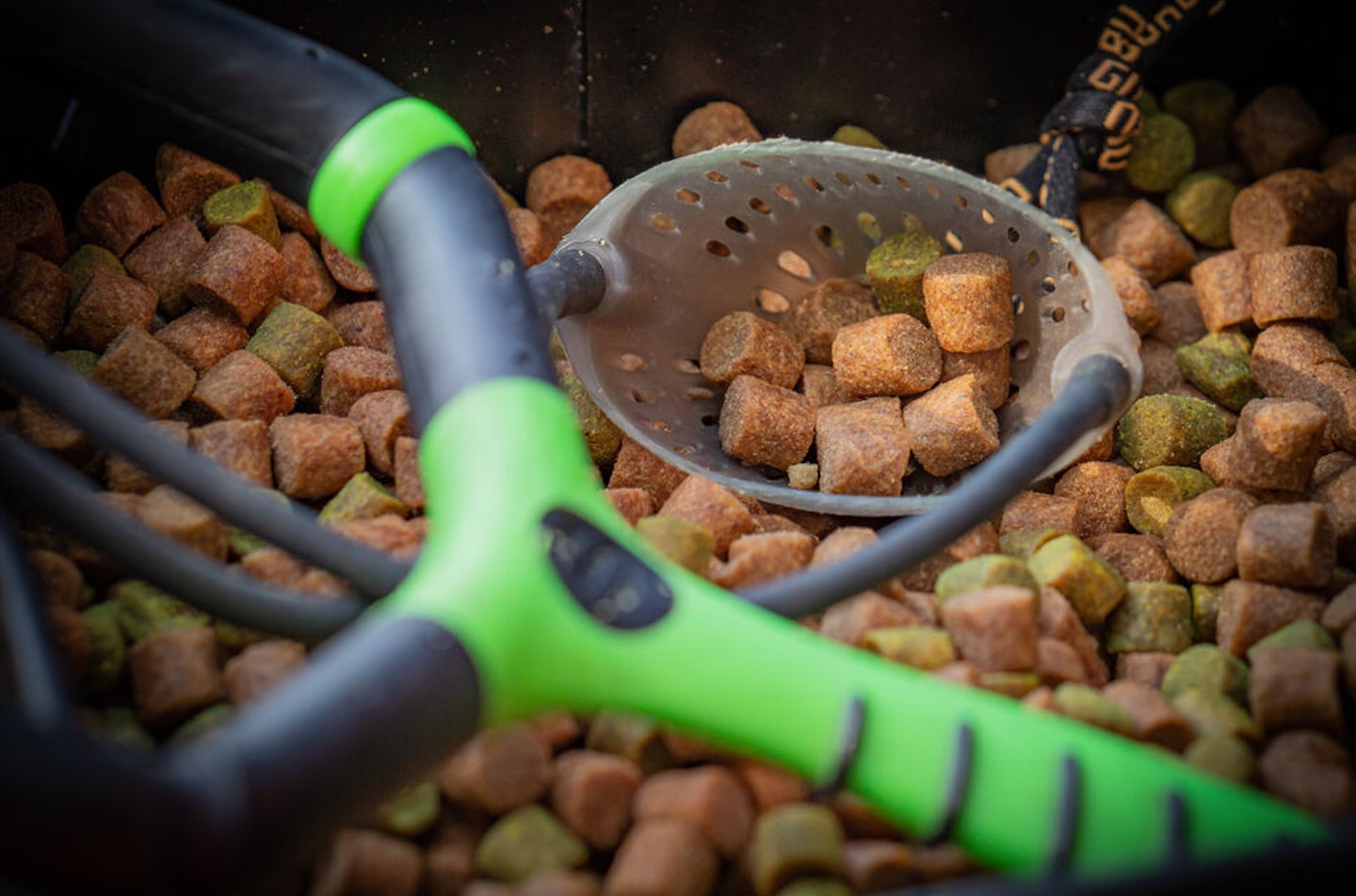In a rush to get fishing it can be easy to overlook one of the most important elements of pole fishing – plumbing the depth.
A couple of minutes spent dropping the plummet around the peg isn’t enough to get a true picture of the lakebed, which is why devoting a good 10 or 15 minutes to the job will be best in the long run.
On commercial fisheries carp will scour the bottom as they feed, which leads to variations in depth by several inches in just a few square yards of the swim. Plumb up incorrectly and you could waste time fishing off bottom or way overdepth.
Another thing to get right is knowing how deep to fish. Dead depth is a good starting point, but is the bait really just touching bottom, taking into account the slight changes in depth? Possibly not. When should you change depth during a session? Sometimes, adding an inch or two to the rig or coming a few feet off bottom can make a dramatic change to how well you catch.
Use two plummets
First I use a 30g Guru Inline plummet, which sinks into silt slightly to confirm what’s down there! I then use a 10g plummet to read the depth.
CHECK OUT THESE EXPERT POLE FISHING TIPS.

Plumb up properly
I plumb up to leave the float bristle and half the body standing proud of the water, This way I know the bait will fish at close to dead depth.
CHECK OUT THESE 5 MUST HAVE CARP POLE RIGS AND TIE YOUR OWN.

Lift and drop
On windy days I used to fish overdepth but now I prefer to fish dead depth and lift and drop the rig - this leads to quicker bites.
THE BEST MARGIN POLES ARE GREAT IN THE WIND.

Come up in the water
If you get line bites after feeding, the carp will be up in the water. Set the float at half-depth to try and work out just where they are.
BEST FISHING CATAPULTS WILL HELP YOU FEED UP IN THE WATER.

